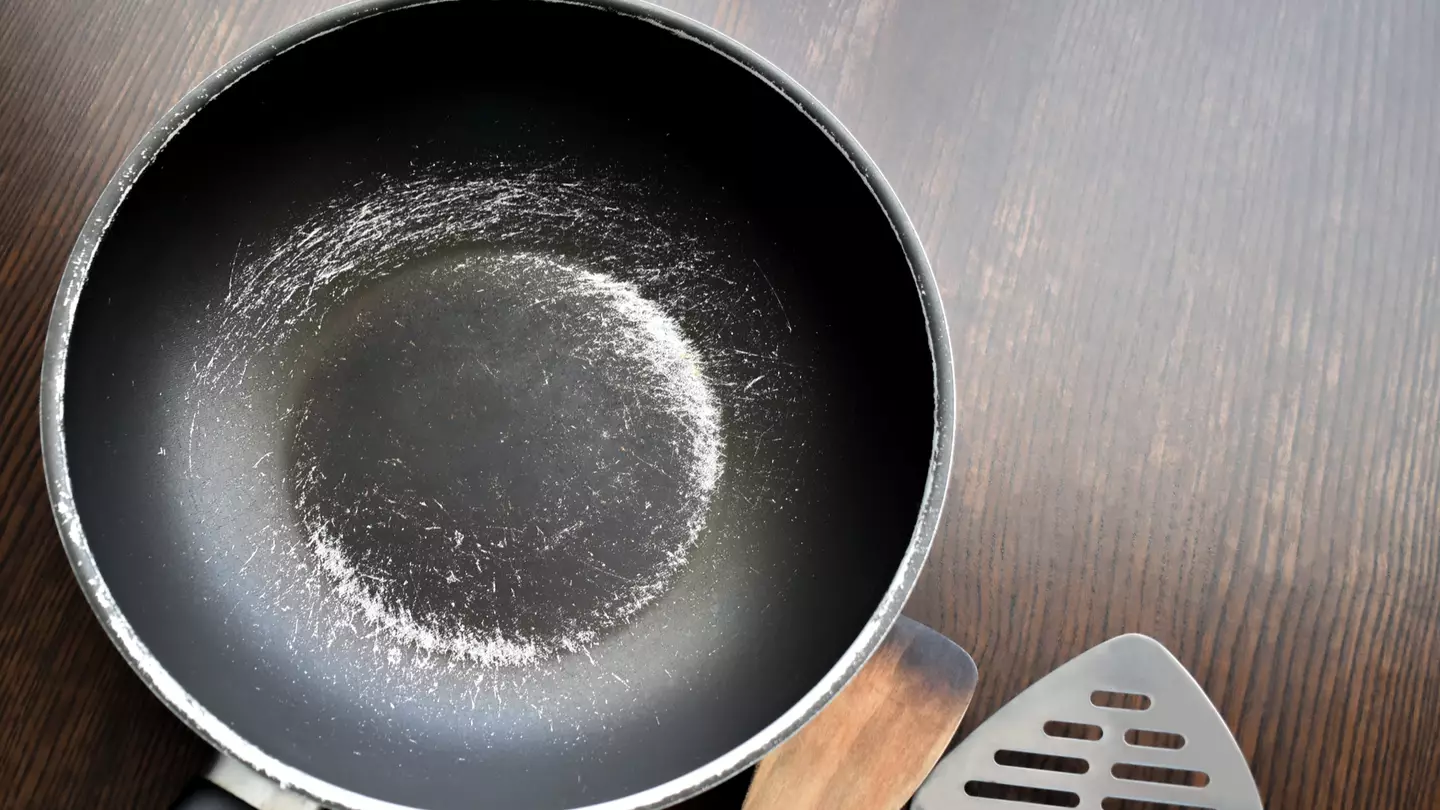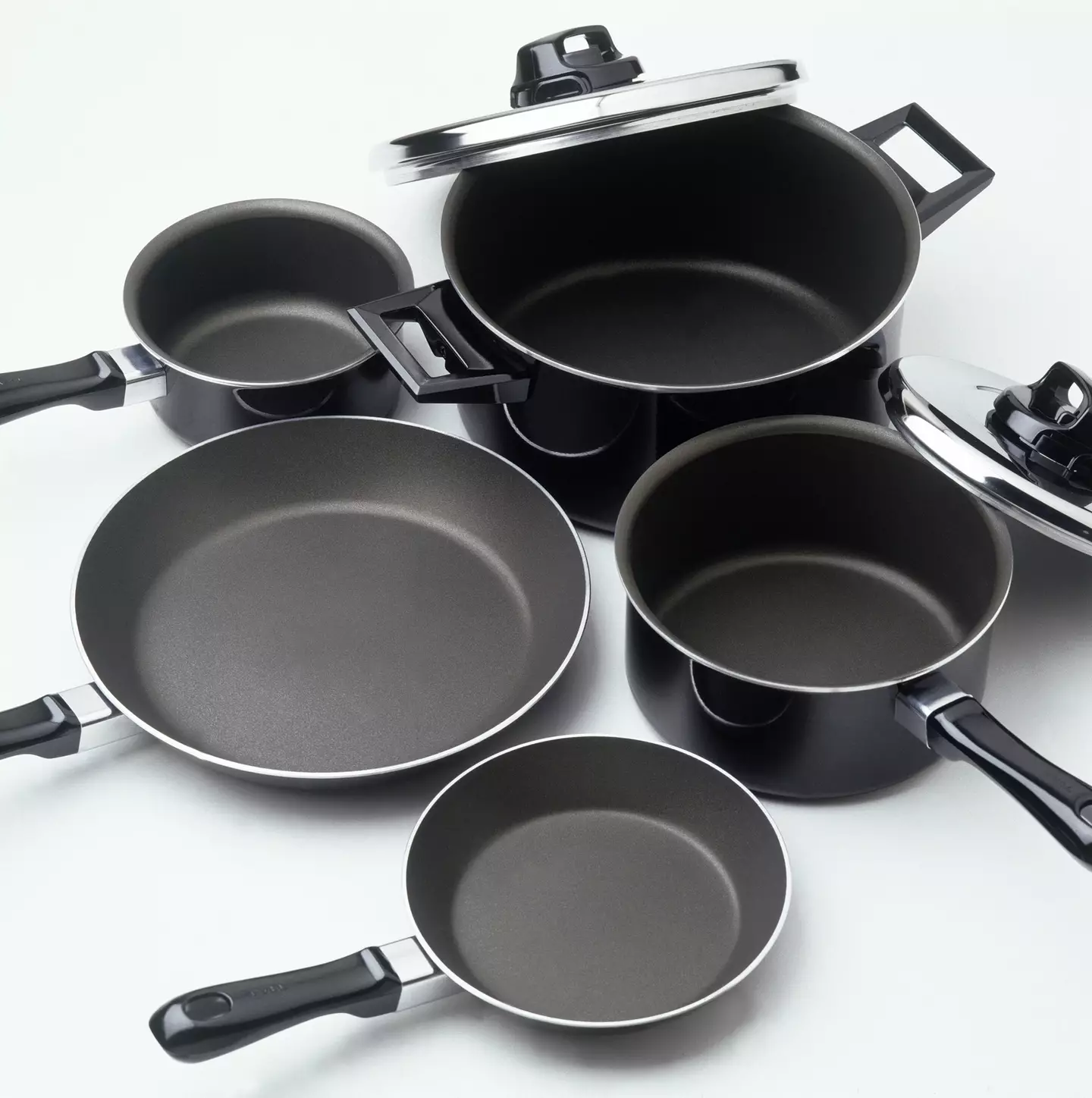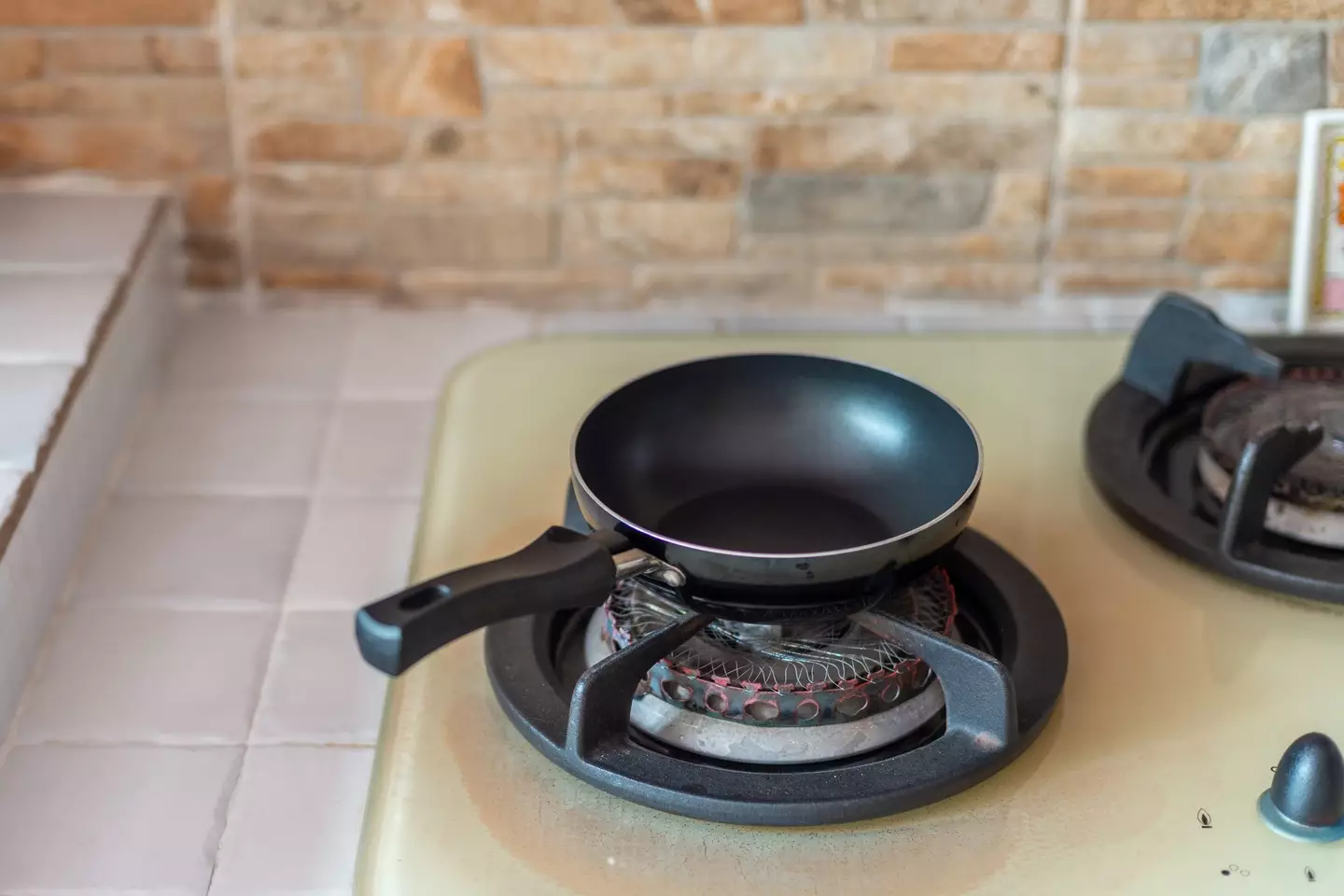
A disturbing study suggests that just a single scratch on certain types of non-stick pans could have major health implications.
In 2022, the Global Centre for Environmental Remediation published the results of a study which examined how nonstick cookware can contaminate food.
They specifically looked into Tpolytetrafluoroethylene (PTFE) coated pans, which are widely used because they prevent food from sticking, not to mention how easy they are to clean.
However, it has been claimed that these same pans contain per- and polyfluoroalkyl substances (PFAS), also known as 'forever chemicals', that are harmful to our health.
Advert
These also build up in the environment and everyone on Earth will eventually have them inside their body.

What the study said about PTFE-coated pans
The study used an algorithm with molecular imaging that, essentially, is able to count microscopic plastic particles released from scratched or damaged nonstick surfaces.
It found that even a single scratch could release at least 9,000 microplastic particles into food. If a pan has deeper cracks or is more worn, that number can skyrocket to an astonishing 2,300,000.
"The characterisation of microplastics is still difficult, and the challenge is even greater for nanoplastics," the researchers noted.
"A possible source of these particles is the scratched surface of a non-stick cooking pot that is mainly coated with [PTFE]."

Nanoplastics have strong links to cancer, birth defects and fertility problems.
These particles are much smaller than microplastics, and have also been detected in water bottles, according to research published by the University of Columbia.
The danger with these nanoplastics is that they are so small that they can enter directly into blood cells and the brain.
Exposure to PFAS is linked to serious health problems, such as liver disease, kidney disease, high blood pressure, and some cancers.

To reduce exposure, the scientists urge people to handle nonstick cookware with care: avoid metal utensils that can scratch the surface, don’t overheat, and dispose of pans once the coating shows wear.
They also suggest switching to PFAS-free alternatives like ceramic-coated or stainless‑/cast‑iron cookware.
"We demonstrate that [PTFE] microplastics, and even more serious nanoplastics, can be potentially released from the non-stick pot during the cooking process, even most of them still stick and connect to the 'mother matrix' as 'embryos' (also sticking to the turner)," the researchers said.
"This gives us a strong warming that we must be careful with selecting and using cooking utensils, to avoid potential food contamination.
"More research is recommended to address the risk assessment of the [PTFE] microplastics."
Topics: Food And Drink, Health